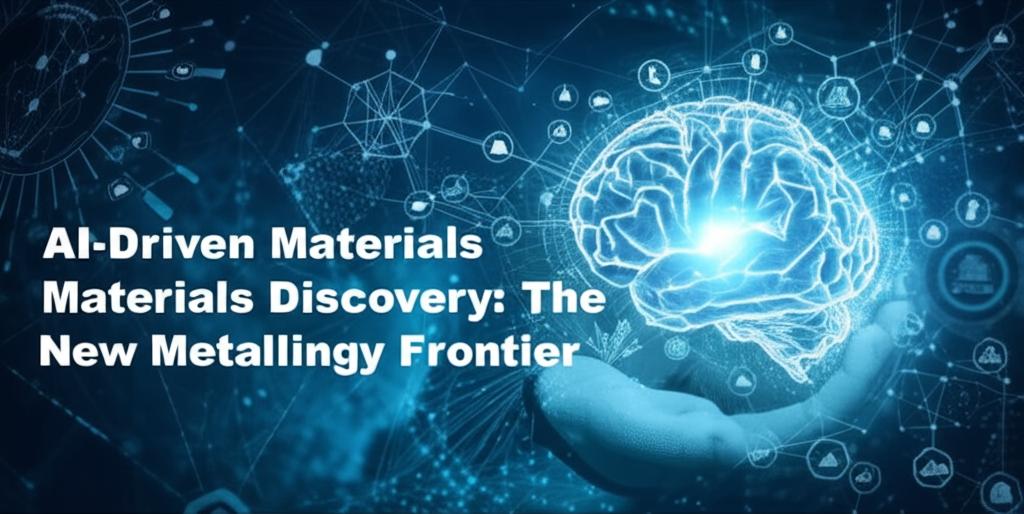The quest for new materials has historically been a deliberate, often painstaking, process of trial and error. But the landscape of metallurgy is undergoing a seismic shift, powered by the transformative capabilities of Artificial Intelligence (AI). This is not merely an incremental improvement; it's a revolution, establishing AI-driven discovery as the new frontier in metallurgy.
Imagine designing novel alloys with unique, predetermined properties – exceptional strength, unparalleled corrosion resistance, or specific thermal characteristics – not in decades, but in a fraction of the time. This is the promise of AI. By leveraging machine learning algorithms, researchers can now analyze vast datasets of material compositions and their resulting properties, identifying patterns and making predictions that would be impossible for humans alone.
Accelerating the Pace of InnovationTraditional materials discovery involves countless hours of experimentation. AI, on the other hand, can simulate and evaluate thousands, even millions, of potential material combinations computationally. This dramatically accelerates the initial screening process, allowing scientists to focus their experimental efforts on the most promising candidates. Companies and research institutions are increasingly employing AI to sift through enormous chemical spaces, leading to the discovery of new materials with tailored functionalities. High-entropy alloys (HEAs) and metal-organic frameworks (MOFs) are just two examples of material classes where AI is making significant strides, unlocking potential applications in aerospace, energy storage, and carbon capture.
Beyond Discovery: Optimization and SustainabilityThe impact of AI extends beyond the initial discovery phase. In metallurgical processes like steelmaking, AI algorithms are optimizing production parameters in real-time. This includes fine-tuning furnace temperatures and chemical compositions to enhance product quality, reduce energy consumption, and minimize waste. AI-powered predictive maintenance is also transforming equipment management by forecasting potential failures, thus preventing costly downtime.
Furthermore, AI is playing a crucial role in advancing sustainable metallurgy. By optimizing processes to reduce CO2 emissions and improving the efficiency of recycling, AI contributes to a greener, more circular economy within the metallurgical industry. AI models can help identify materials with desirable environmental properties, such as recyclability and low energy consumption during production.
The "Metallic Mind": AI as a CollaboratorAI tools are becoming indispensable collaborators for metallurgists and materials scientists. These systems can analyze complex data, identify trends, and even suggest novel research directions. This synergy between human expertise and artificial intelligence is pushing the boundaries of what's possible in materials innovation. Some AI models can even predict material properties based on their atomic structure or assist in the "inverse design" of materials, where desired properties are specified first, and AI helps identify the corresponding compositions.
Navigating the ChallengesDespite the immense potential, the integration of AI in metallurgy is not without its hurdles. The need for large, high-quality datasets is paramount for training effective AI models. Ensuring the interpretability of AI's predictions and addressing concerns about data privacy and the need for a skilled workforce are also important considerations.
The Road AheadThe journey of AI-driven materials discovery in metallurgy is still in its relatively early stages, but its trajectory is clear. As AI algorithms become more sophisticated and computational power continues to grow, we can expect even more rapid advancements. From designing next-generation alloys for extreme environments to creating sustainable materials for a circular economy, AI is poised to redefine the future of metallurgy, ushering in an era of unprecedented innovation and efficiency. The development of autonomous labs, where AI directs robotic systems for material synthesis and testing, further highlights the transformative potential of this new frontier.

